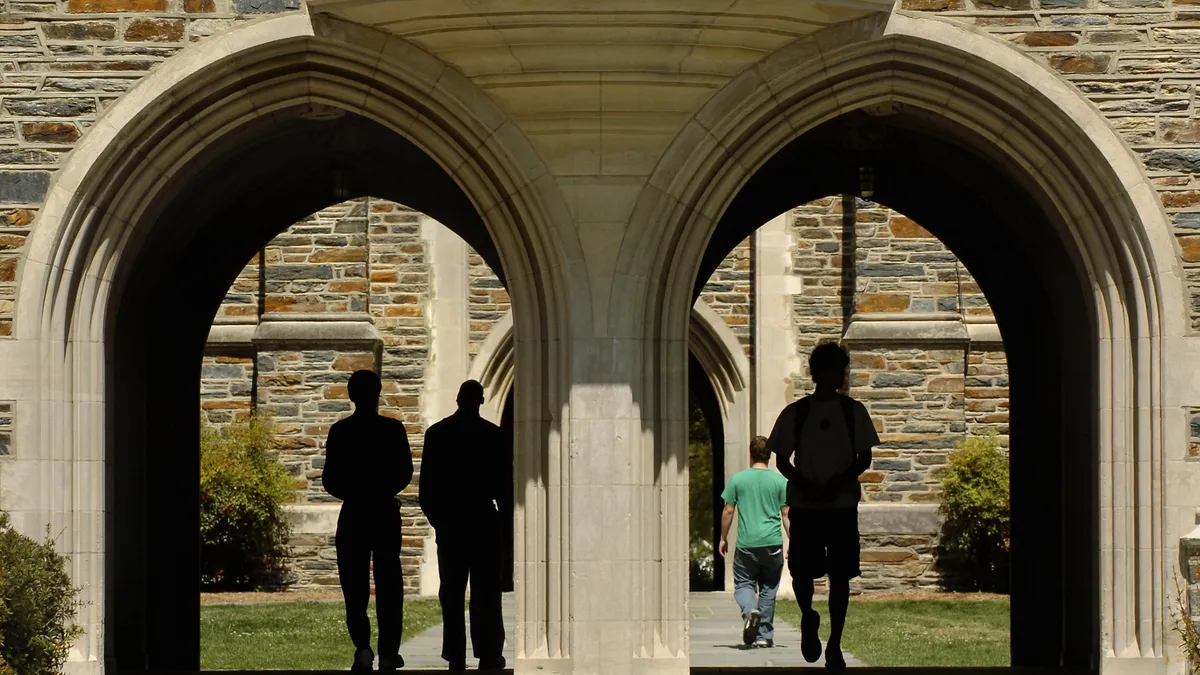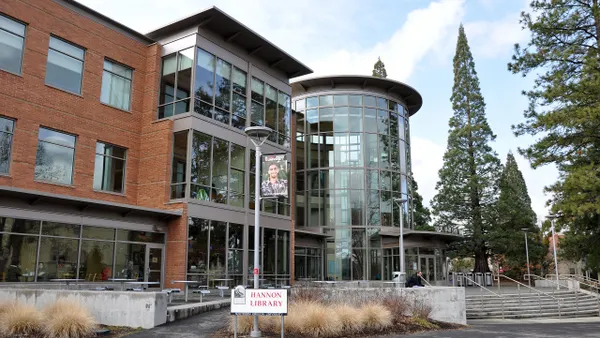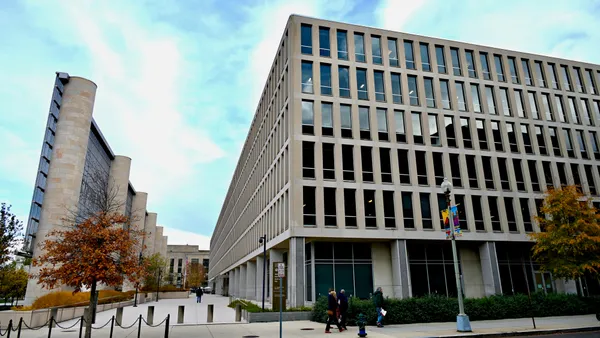Dive Brief:
- Columbia University’s Office of Institutional Equity plans to formally use a controversial definition of antisemitism when conducting its work, Acting President Claire Shipman said in a message this week.
- The Ivy League institution will embrace the International Holocaust Remembrance Alliance’s working definition of antisemitism when investigating discrimination on campus, joining other well-known colleges like New York University and Harvard University. However, critics of the definition say it undermines free speech by potentially chilling and punishing criticism of Israel.
- The news comes as Columbia reportedly nears an agreement with the Trump administration to reinstate some of its $400 million in suspended federal funding.
Dive Insight:
The Trump administration froze the funding earlier this year over claims that Columbia hasn’t done enough to protect Jewish students from antisemitism. And in May, the U.S. Department of Health and Human Services determined that the university violated Title VI by being deliberately indifferent to “student-on-student harassment of Jewish students.”
Title VI prohibits federally funded institutions from discriminating on the basis of race, color or national origin.
Under a potential deal between Columbia and the federal government, the university would potentially pay some $200 million for alleged civil rights violations and add more transparency around the foreign gifts it receives, anonymous sources told The New York Times last week.
In return, the Trump administration would return some of the $400 million in federal funding it suspended earlier this year over allegations that the university hadn't done enough to protect Jewish students from harassment.
Shipman referenced Columbia’s ongoing negotiations with the Trump administration in her message Tuesday.
“The fact that we’ve faced pressure from the government does not make the problems on our campuses any less real; a significant part of our community has been deeply affected in negative ways,” Shipman said. “In my view, any government agreement we reach is only a starting point for change. Committing to reform on our own is a more powerful path.”
Having the university’s Office of Institutional Equity adopt the IHRA definition is one of several steps Columbia is taking to address harassment and discrimination, she said.
“Formally adding the consideration of the IHRA definition into our existing anti-discrimination policies strengthens our approach to combating antisemitism,” Shipman said.
IHRA’s definition of antisemitism says that “criticism of Israel similar to that leveled against any other country cannot be regarded as antisemitic.” However, free speech and civil rights groups have raised alarms over some of the definition's examples of possible antisemitism.
Those include “drawing comparisons of contemporary Israeli policy to that of the Nazis” and “claiming that the existence of a State of Israel is a racist endeavor.”
Kenneth Stern, the lead drafter of the definition, has frequently spoken out against using the definition to enforce antidiscriminations laws on campus. He noted that it was developed to help European data collectors monitor antisemitism and has argued the definition could be misapplied to restrict classroom instruction and discussion, including on works critical of Zionism.
Stern, who heads Bard College’s Center for the Study of Hate, also opposed the federal government’s adoption of the definition in 2019, when President Donald Trump signed an executive order directing federal agencies to consider it when enforcing Title VI.
Columbia’s new adoption of the definition has sparked outcry, including from the university’s Knight First Amendment Institute, which aims to defend free speech through research, advocacy and litigation.
“Restricting criticism of Israel and its policies, including by faculty and students directly affected by those policies, universities compromise the values they should be defending — free speech, free inquiry, and equality as well,” Jameel Jaffer, executive director of the institute, said in a statement Wednesday.
Shipman also said university officials will not meet with or recognize Columbia University Apartheid Divest, a coalition of student groups that has called on the institution to cut ties with Israel and organized the protest encampment last year.
“Organizations that promote violence or encourage disruptions of our academic mission are not welcome on our campuses and the University will not engage with them,” Shipman said.
CUAD slammed Columbia on social media Thursday.
“Columbia didn’t 'capitulate' to the Trump administration's Title VI threats — it welcomed the excuse,” the group said. “The university has long sought to implement IHRA and crack down on Palestine solidarity. Federal pressure just gave them the cover to do what they already wanted.”














